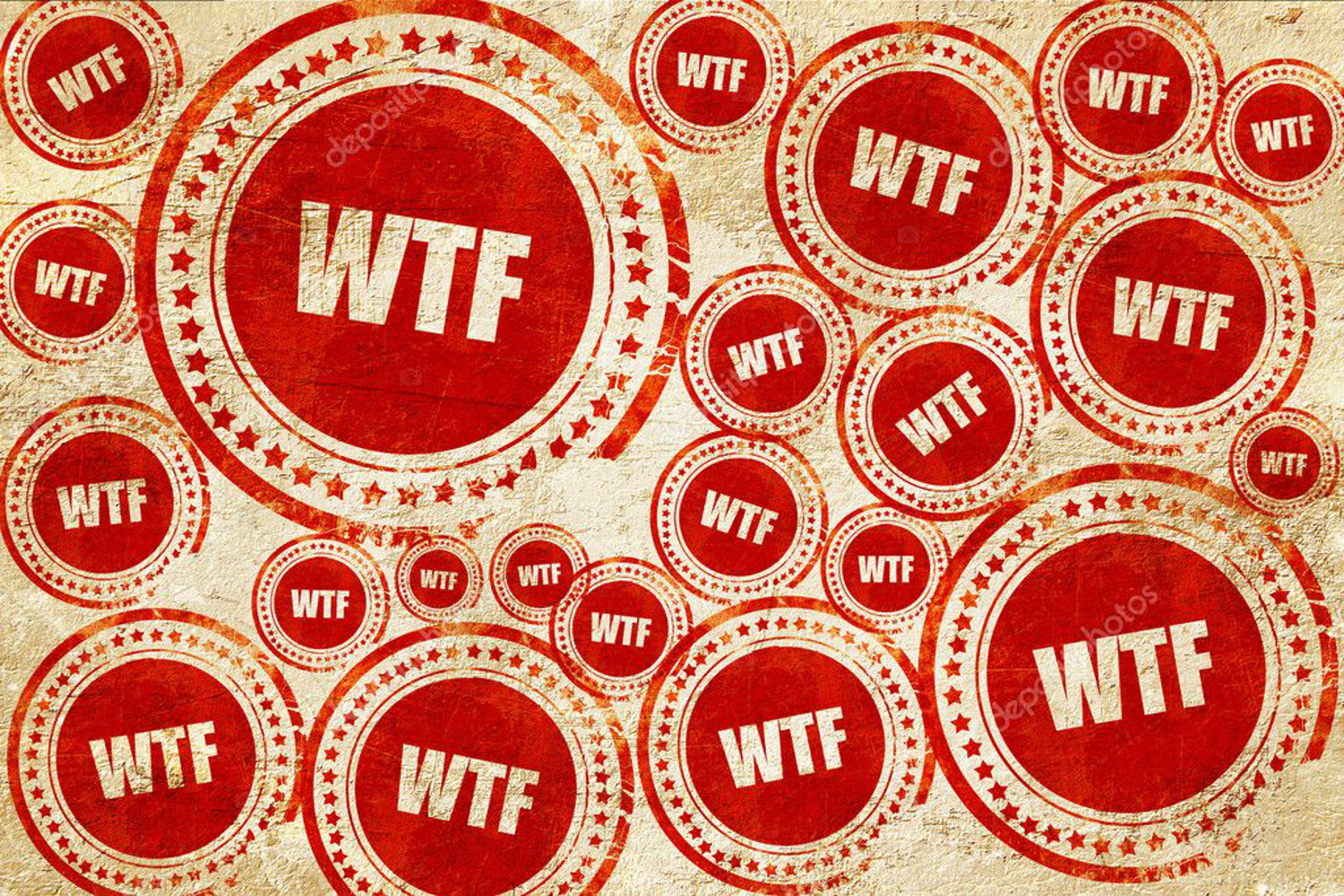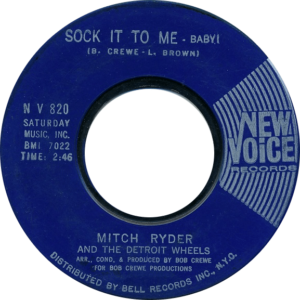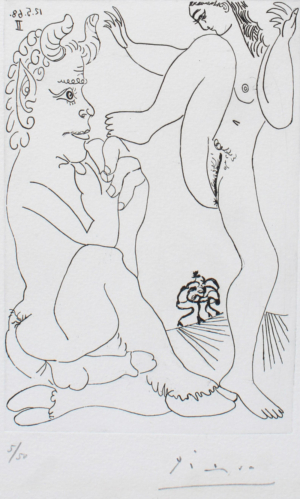Estimated reading time is 6 minutes.
THE WORD THAT INSPIRED the term “four-letter word” is considered among the foulest of words in the English language. That alone guarantees it a place in the lexicon begging to be researched. And that word is fuck. And finding out all about fuck is not all that easy a thing to do . . .
I am a child of the post-WWII baby boom; that is, the original boom that occurred in the years after the war. The post-war birth rate peaked in 1947-48 (almost 27 births per 1,000 population) and more or less plateaued out until 1956-57 (almost 24 births per 1,000 population). This was followed by a steady decline until it reached a low in the 1970s (less than 15 births per 1,000 population).
As a word, “fuck” dates from the 1670s and wasn’t in a single English language dictionary from 1795 to 1965.
I am not in accord with the consensus opinion, which accepts the Baby Boomer population as having been born between 1946 and 1964. Too long for me and NOT the endlessly extended, never-ending boom that lasts into the mid-1960s. Again, I am meandering.
For those of us born in that time and who went to school in the 1950s and ’60s here in the United States, speaking that word aloud could get one’s face or behind slapped, be forced to take a bite of an Ivory soap bar and chew it, or be sent to the Principal’s office.
That fuck can also be described using such adjectives as universal and ubiquitous makes it all the more fascinating a topic for those with a need to know about the language they and others around them use daily. Here find three sources discussing aspects of the etymology of the word fuck . . .
Erotic fantasy in ancient Indian art.
Etymologically, “fuck” has been difficult
Until recently, fuck was a difficult word to trace, in part because it was taboo to the editors of the original Oxford English Dictionary. The earliest appearance of the current spelling (fuck) is 1535, but presumably, it is a much more ancient word than that, simply one that wasn’t written in the kind of texts that have survived from Old English and Middle English.
The earliest examples of the word otherwise are from Scottish, which suggests a Scandinavian origin—perhaps from a word akin to Norwegian fukka or Swedish focka (both ‘copulate’) and fock (‘penis’). Another theory traces it to Middle English fyke or fike (‘move restlessly, fidget’ [but] which also meant ‘dally, flirt’).
This would parallel the usual Middle English slang term swive (‘to have sexual intercourse’), which is from Old English swifan (‘to move lightly over, sweep’). But OED remarks that these cannot be shown to be related to the English word.
As a noun, fuck dates from the 1670s. Samuel Johnson excluded the word in his A Dictionary Of The English Language (1755) and fuck wasn’t in a single English language dictionary from 1795 to 1965.
Fuck was outlawed in print in England by the Obscene Publications Act of 1857 and by the Comstock Act of 1873 in the US.
Wally Wood’s notorious poster for Paul Krassner’s Realist magazine from 1966 that satirized Disney’s squeaky-clean image was later turned into a black light poster that was hard to find even in the ’60s.
Attitudes remain fucked up
Progress in acceptance of the word’s near-universal usage began in the mid-20th century. In1949, Hemingway substituted muck for fuck in For Whom The Bell Tolls. In 1948, the publishers ‘persuaded’ Norman Mailer to use fug instead of fuck in his WWII novel The Naked And The Dead. When Mailer was introduced to Dorothy Parker, she greeted him with, ‘So you’re the man who can’t spell fuck.’
The variation in meanings of “fuck” can be attributed to differences in national culture, local culture, sociological culture, and generational culture.
The big breakthrough literarily came in 1950 with the publication of James Jones’s From Here To Eternity, which featured the characters saying ‘fuck’ fifty times, down from 258 in the original manuscript!
The legal barriers also broke down in the 20th century, with James Joyce’s Ulysses (1933) and the D. H. Lawrence’s Lady Chatterley’s Lover decisions (1959). The Penguin Dictionary broke the lexicographer’s taboo in 1966, followed by Houghton Mifflin and The American Heritage Dictionary in 1969.”
The above is taken (and edited and rewritten) from the Online Etymology Dictionary. That article is more than 800 words in length, while my abridgment above is just over 300 words, so there is lots more to read, so click over to OED and read the rest.
In 1967, early pressings of Mitch Ryder & the Detroit Wheels’ new single Sock It To Me – Baby! (multi-color label, top) met with some problems with airplay: one part of the lyrics was supposed to be “Honey in the beehive, honeybunch, every time you kiss me feels like a punch.” Radio programmers were hearing it as “feel like a fuck.” Supposedly, that phrase was rerecorded and dropped into all subsequent pressings so that “punch” sounded like “punch.”
Ever-flexible, “fuck” can mean anything
And fuck so damn flexible: it can mean almost anything the user wants it to mean. As a noun, it refers to the act of sex and can be meant negatively—to deem that act as base, bestial, below decent human standards—or it can be positive, even tender among real lovers who just want to get down and, well, fuck.
Of course, as a verb, it means to actually “do it.” It is usually used to describe an act of pure (mere?) copulation, devoid of the emotional or spiritual aspects that most of us expect to exist for us to call the act of copulation and the act of making love.
As a two-word phrase—Fuck you!—it can be meant derogatorily, dismissively, jokingly, or even affectionately. A common variation is Fuck off, which is usually dismissive but can also mean more.
And Fuck you! and Fuck off! don’t have to be said, they can be implied. And its use, mostly indirectly, is rather popular in popular culture. The Rolling Stones are notorious for their put-downs of the fairer sex: The best-known example in most people’s minds is Under My Thumb. But careful listening to the lyrics lets one know that the song is really an example of the phrase “turnabout is fair play.”
A better example might be Stupid Girl (“She bitches ’bout things that she’s never seen. Look at that stupid girl”). But each of these songs is aimed at a particular person—supposedly the girls that the group met on their 1966 tour of the States. But a much better example of an indirect “fuck you” as a pop song can be easily found . . .
In 1965, Dobie Gray had a huge hit on the pop charts with a song called The In Crowd. The lyrics are essentially one big Fuck you! to everyone who is not a member of that in-crowd: “I’m in with the in-crowd, I go where the in-crowd goes. / I’m in with the in-crowd, and I know what the in-crowd knows.” But I digress (which I confess, is a bit of a habit of mine).
Anh etching displaying Pablo Picasso’s seeming endless fascination with women and sex.
And “bugger off” is NOT “fuck off”
Another example of cultural variations on a common phrase or bit of slang is Bugger off! In the US, the word bugger is almost always associated with (unwanted) anal intercourse. So, an American saying Bugger off! would be interpreted by many, if not most, other Americans as using an equivalent to a negative variant of Fuck you! or Fuck off!
In the UK, its meaning is completely different. When one Englishman tells another to Bugger off!, he is usually telling him, “Go away and leave me alone.” And here I go again, off into the wild blue digression.
Mystically liberal Virgo enjoys long walks alone in the city at night in the rain with an umbrella and a flask of 10-year-old Laphroaig who strives to live by the maxim, “It ain’t what you know that gets you into trouble; it’s what you know that just ain’t so.
I’ve been a puppet, a pauper, a pirate, a poet, a pawn, and a college dropout (twice!). Occupationally, I have been a bartender, jewelry engraver, bouncer, landscape artist, and FEMA crew chief following the Great Flood of ’72 (and that was a job that I should never, ever have left).
I am also the final author of the original O’Sullivan Woodside price guides for record collectors and the original author of the Goldmine price guides for record collectors. As such, I was often referred to as the Price Guide Guru, and—as everyone should know—it behooves one to heed the words of a guru. (Unless, of course, you’re the Beatles.)










